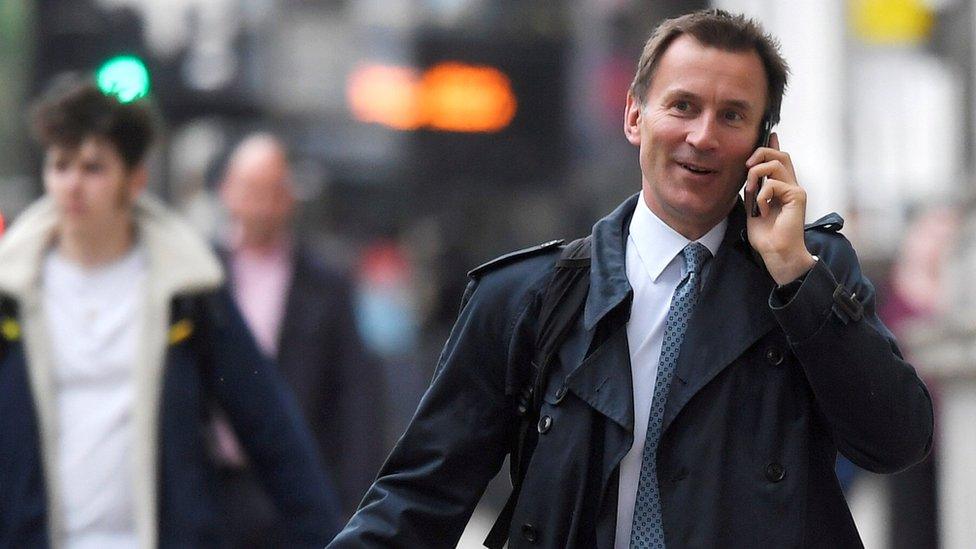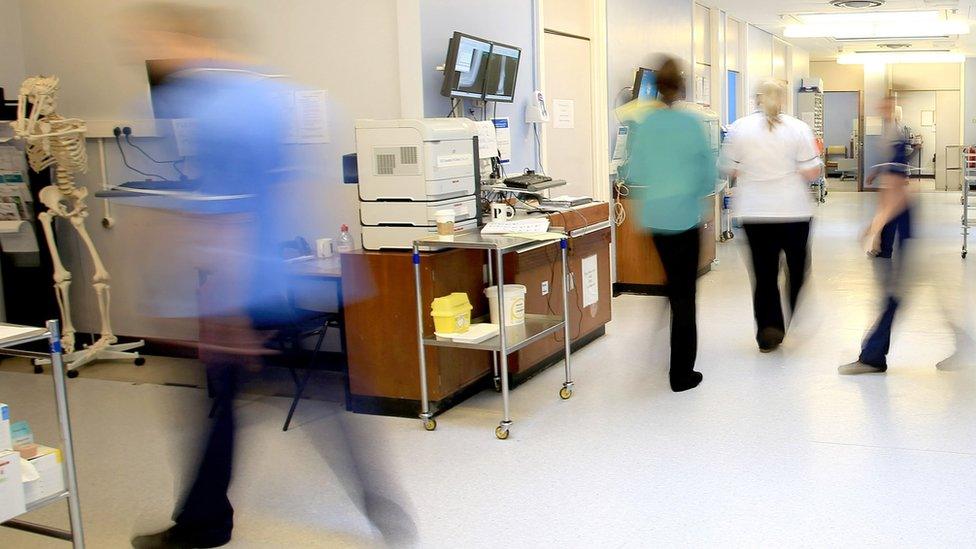A cross-party solution to NHS pressures?
- Published
- comments
Rival MPs call for a cross-party approach to NHS funding
Just before Easter, Theresa May announced she had finally accepted the case for a longer-term, and bigger financial commitment to the NHS.
But how much to pay, and how to find the money is not yet decided.
The Health Secretary, Jeremy Hunt, has appealed to his colleagues for ideas, promising in a letter to all Tory MPs that solutions for the NHS and proposals on social care will be settled by the summer.
But a cross-party group of MPs including former ministers, is again urging the government to convert National Insurance into a specific tax for the NHS.
That proposal is part of a wider set of principles upon which they would base a commission to look at the health service's long-term pressures, that is being published today.
Most intriguingly, members of the group tell me that Jeremy Hunt is open to their idea.
He has made it plain he accepts there may have to be increases in tax, but hasn't made a commitment or a case for a particular option.
Potential plan
The government has moved frustratingly slowly for its critics on the fraught and controversial issue of how we should pay for heath care.
Demographics and demand mean the issue is more vital than ever.
The proposals being put forward by MPs as a potential plan are interesting in themselves.

The health secretary is reported to be be open to the idea of a specific tax for the NHS
But what's also intriguing is the fact that MPs of different stripes, officially, have been able to agree them.
I simply can't remember a different occasion when I have sat across from three MPs from different political tribes and they have not just grudgingly agreed to accept one or other of their rivals' points, but have deliberately worked together to construct solutions for one of the country's pressing problems.
Backbench revolution?
There has been a frenzy on occasion recently over whether a new centre party might explode onto the scene.
With frustrations about and suspicion of the front benches of both of our big parties, the idea is raised from time to time, although the genuine evidence of that is scant.
But by their admission, the three MPs I interviewed about their NHS plans are acting together not just because they don't have much faith in their leaderships to act, but they fear it might be politically impossible for them to do so.

They see this as a gap into which backbenchers might be able to step, and potentially not just on the NHS, but on other issues like housing too.
Don't write the headlines about a new party, or a new centre, whatever that means.
This is also not a start of some backbench revolution.
We are far from reaching a point where non-ministers can call all the shots.
But it is a growing feature of this minority Parliament that MPs whose places are in the Commons' cheap seats are making their voices, and Parliament's shout louder.